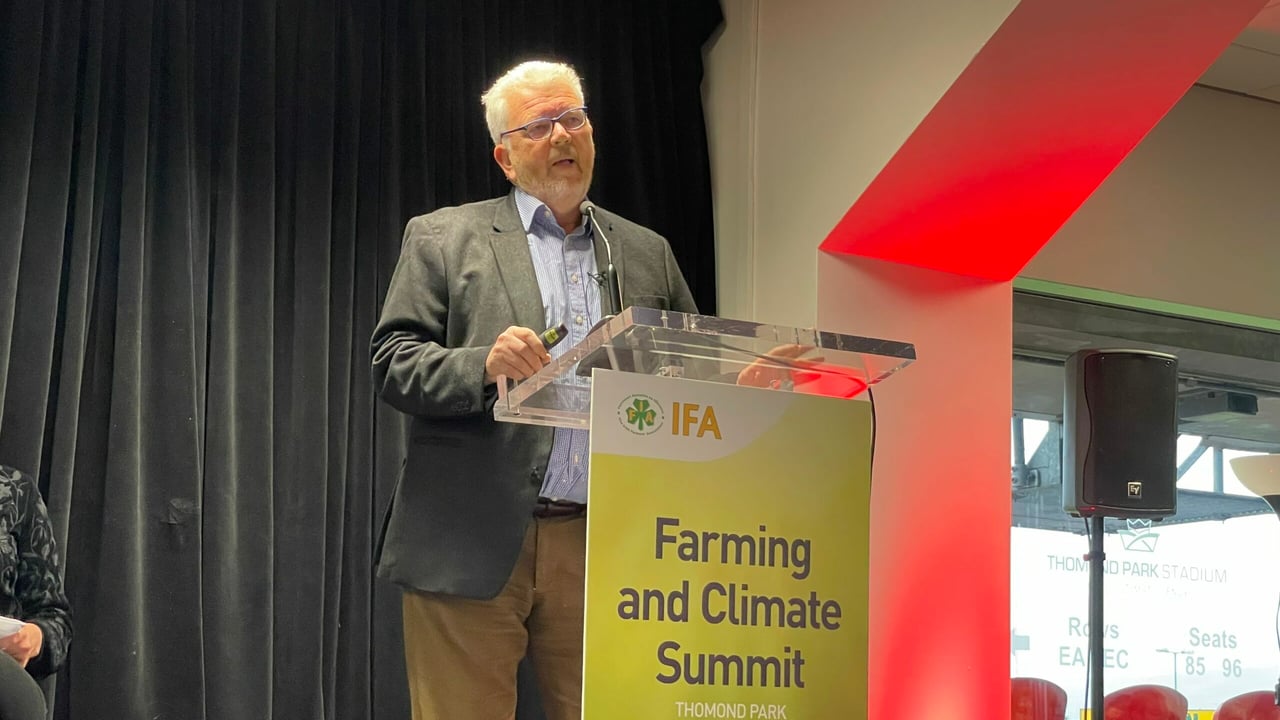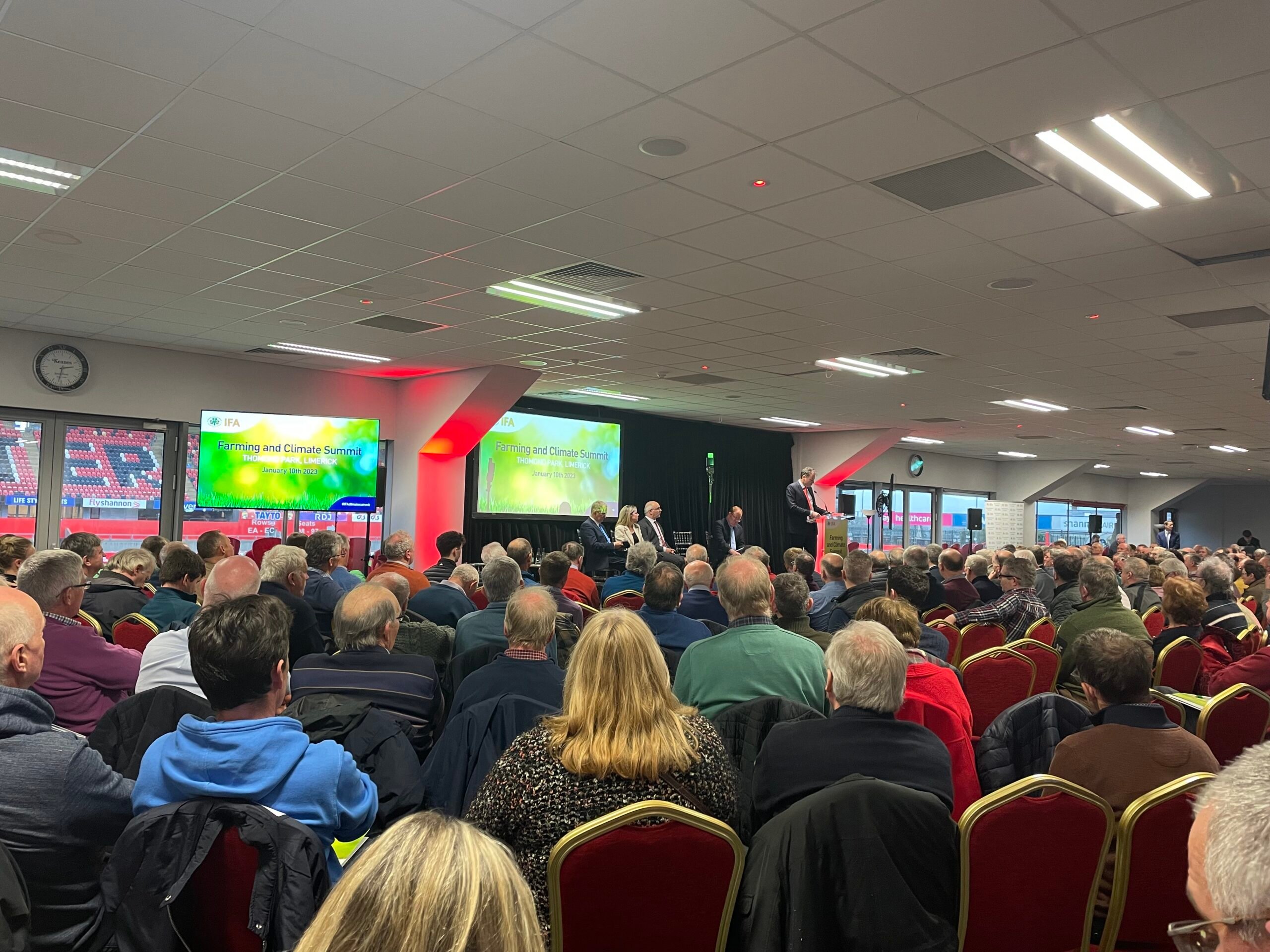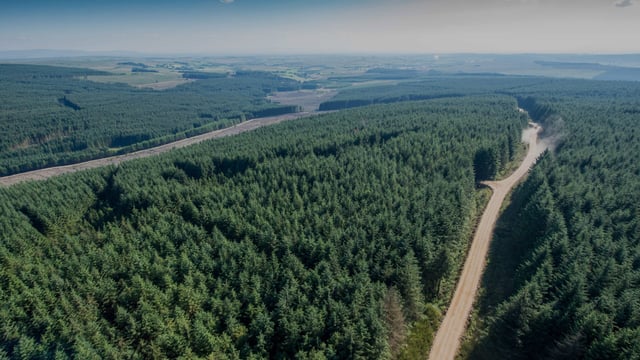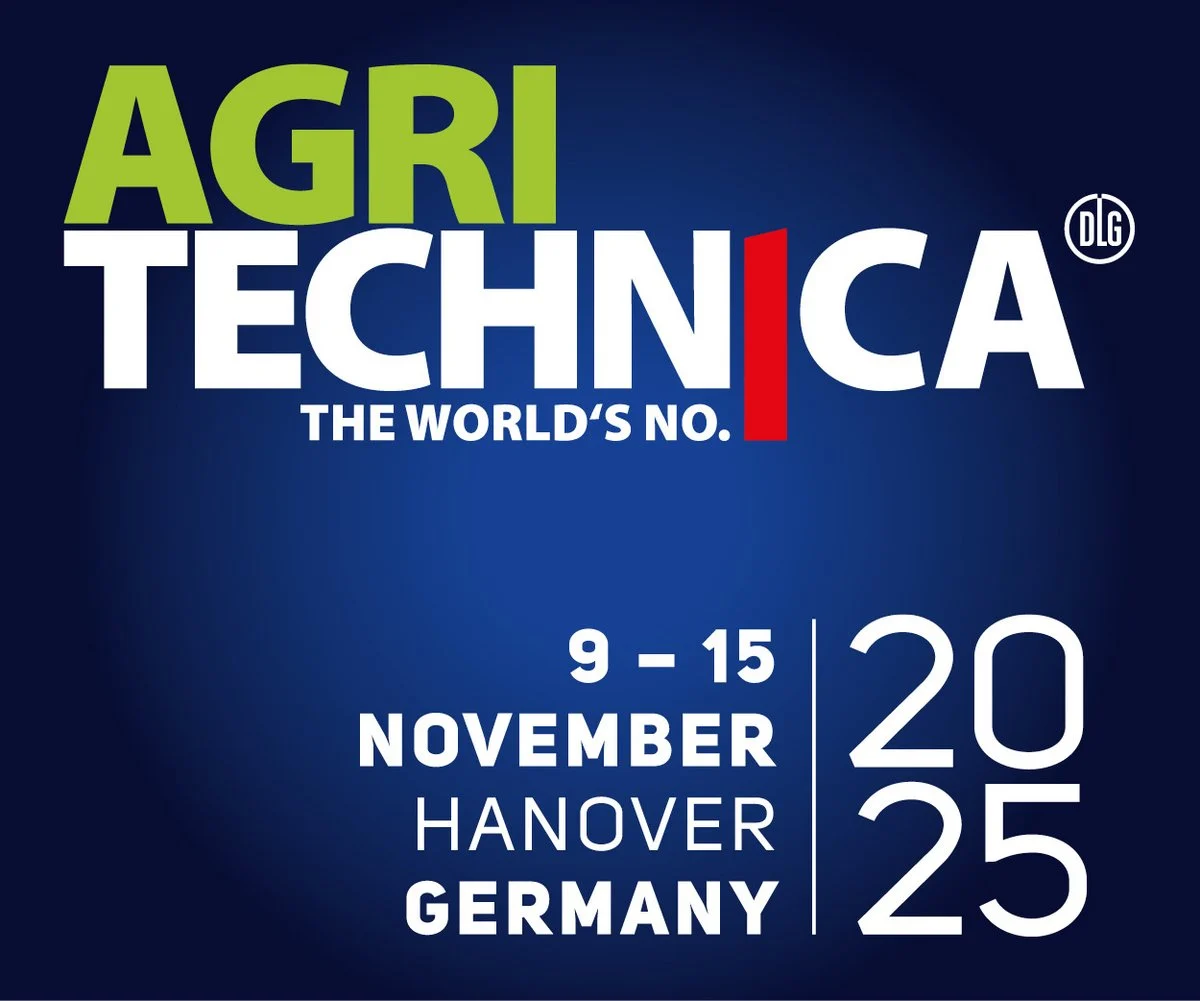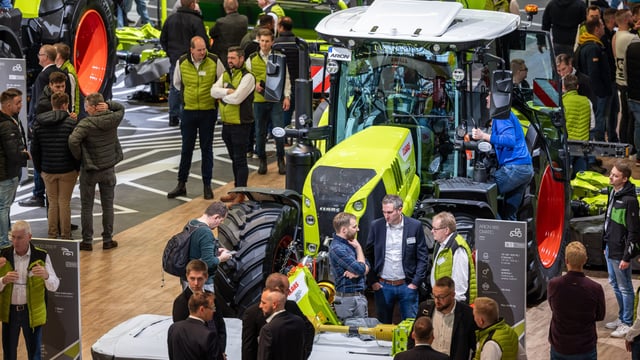IFA Climate Summit: Economic impact of agriculture 'ignored'
The significant contribution of the agriculture sector to the Irish economy is being "ignored and dismissed" in the climate change debate, a food economist has claimed.
According to the Central Statistics Office (CSO), the economic output of the Irish agriculture sector was worth over €12 billion in 2022, an increase of almost €6 billion since 2010.
However, Ciaran Fitzgerald said that the Irish economic narrative does not include the agri-food sector, instead choosing to focus on corporation tax and foreign direct investment.
Fitzgerald said that a 1% reduction in agricultural output results in a €120 million loss to the sector and a drop of €240 million across the wider economy.
He added that every €1 billion in agri-food exports results in €1.1 billion spent in the Irish economy.
"This needs to be factored into any discussion on decarbonising the economy," he said.
The economist was among the speakers at the Irish Farmers' Association (IFA) Farming and Climate Summit held at Thomond Park in Limerick today (Tuesday, January 10).
Fitzgerald said that this misrepresentation of the agri-food sector promotes the incorrect notion of a low contribution to the economy which could be easily replaced.
The summit heard that the major challenge for the agriculture sector will be to show its economic relevance when interacting with the government.
"When you're relevant, you don't get given away," Fitzgerald said.
The food economist said that CSO data shows the spend by the agri-food sector in the Irish economy is three times greater than other sectors.
"Foreign direct investment is a huge part of the Irish economy but it is not the only part. That is the key. Balance is required here," he said.
Fitzgerald said that agriculture has been characterised in recent years as "a polluter", adding:
Fitzgerald said that the prejudice around the economic thinking around the sector should be challenged.
"One of the ironies of where we sit is agriculture is far more ready and organised and structured to deal with decarbonisation than any other sector of the Irish economy," he said.
"What I think this sector requires is first and foremost a recognition that its economic impact is significant, a recognition that the intent is decarbonisation of the economy and that some of the bias and prejudice against livestock production needs to be put where that sort of thing needs to be put - away in a press somewhere.
"If we are serious about decarbonisation and the buy in, we need to honestly look at the economic impact of the sector and look at the fact that global demand for Ireland's grass based offering is increasing, despite what is being said by some of the detractors," Fitzgerald said.

